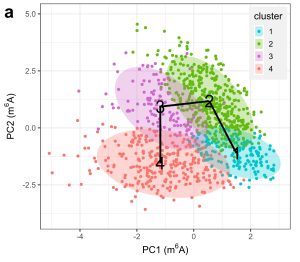06 Dec 2024

Recently, the research paper titled " Financial Sustainability in the Context of ESG Disclosure: A Comprehensive Analysis of Chinese-listed Firms" by Mohamed Omran from the Department of Accounting at the International Business School Suzhou (IBSS) of Xi'an Jiaotong-Liverpool University (XJTLU) has been accepted and published in the Tier 1* journal “Corporate Social Responsibility and Environmental Management”. Dr Omran's research reveals the strong link between ESG disclosure and financial sustainability among listed companies in China, emphasizing the pivotal role of high-quality auditing and independent boards in enhancing corporate ESG performance and financial health.
This study investigates the relationship between ESG disclosure and financial sustainability among Chinese-listed A-shares from 2009 to 2021. Following stakeholder theory, Dr Omran highlights the importance of incorporating corporate governance mechanisms into firms' ESG disclosure strategies to improve financial sustainability. The quality of audits and the independence of boards significantly undermine this relationship by enhancing transparency and reducing managerial opportunism. The robustness of these findings has been validated through comprehensive testing.
ESG frameworks have the potential to promote sustainability; however, specific governance structures may inadvertently weaken these advantages. This research offers valuable insights for investors and policymakers by identifying the critical governance factors in ESG reporting that influence long-term corporate financial health. It aids firms in balancing the interests of various stakeholders—shareholders, employees, customers, and the community. Strengthening governance structures enhances a firm's capacity to meet stakeholder expectations while aligning with long-term financial objectives. This interconnection underscores the importance of incorporating robust governance into ESG strategies, positioning it as a vital stakeholder engagement component. The findings highlight the necessity of prioritising quality in ESG disclosures and governance frameworks, indicating that audit quality and board independence are essential for the success and credibility of ESG initiatives, particularly in fostering financial sustainability.
Independent board members are essential in overseeing and meticulously auditing corporate processes. This oversight enhances stakeholder trust and confidence in companies' ESG initiatives. The effectiveness of ESG disclosures allows organisations to capitalise on the financial benefits of sustainable practices. Corporate decision-makers are encouraged to embrace a comprehensive approach emphasising the synergy between governance and sustainability. Independent board members bolster stakeholder trust in ESG initiatives by diligently overseeing and auditing processes. Robust ESG disclosures empower companies to harness the financial advantages of sustainable practices. Corporate leaders must adopt a holistic approach highlighting the significant interplay between governance and sustainability.
This study emphasises the considerable impact of ESG disclosures on financial sustainability, offering industry professionals valuable insights into the robust correlation between responsible business practices and economic performance. As global ESG regulations become increasingly stringent, stakeholders will gain a critical understanding of the Chinese market and how publicly listed companies adapt, thereby enhancing their compliance strategies. Investors will also uncover how ESG performance influences investment decisions, aiding in identifying both leading and lagging sectors in sustainability. This paper highlights the potential risks of insufficient ESG practices, empowering firms to strengthen their risk management strategies. By examining Chinese firms, professionals can effectively benchmark their ESG initiatives and identify areas for improvement.
Dr Omran’s findings will strengthen stakeholder engagement by highlighting the importance of transparency in ESG disclosures and its influence on public trust. The study will showcase successful ESG case studies from Chinese companies, providing practical lessons that can be applied across different contexts. Ultimately, this analysis will uncover emerging trends in ESG disclosure and financial sustainability, equipping businesses to prepare for future developments. Industry professionals will be better positioned to enhance strategic decision-making and align operations with evolving sustainability and corporate responsibility standards.
Dr Mohamed Omran is currently working as a Senior Associate Professor in Accounting at the International Business School Suzhou (IBSS), Xian Jiaotong-Liverpool University (XJTLU). He gained his PhD in Accounting 2008 from La Trobe University, Australia. Dr Omran is a member of both CPA and CMA Australia. He possesses long international experience (over 30 years) in teaching accounting subjects in different universities around the globe (i.e., China, Australia, Kuwait, and Egypt). Before joining XJTLU, Dr Omran worked as a Senior Lecturer of Accounting at Central Queensland University (Australia) and Associate Professor of Accounting at Gulf University for Sciences and Technology (Kuwait). Dr Omran taught various accounting subjects, including financial accounting, management accounting, and auditing. His research interests include corporate financial reports and disclosure, corporate social responsibility, and corporate governance issues. Dr Omran has published widely in accounting and finance journals, such as the British Accounting Review, Journal of Applied Accounting Research, Asian Review of Accounting, etc. He is currently AE for the Journal of Applied Accounting Research and member of advisory board member for the Journal of Accounting Organizational Change.
Corporate Social Responsibility and Environmental Management is an international journal focused on businesses' social and environmental responsibilities in sustainable development. It is listed as a Tier-1*, ABS-1, ABDC-C journal, with an impact factor 8.3. The journal focuses on research and practical advice for developing and assessing social responsibility and environmental tools, practical case studies, and evaluating the relative strengths and weaknesses of different approaches to sustainability.
06 Dec 2024








